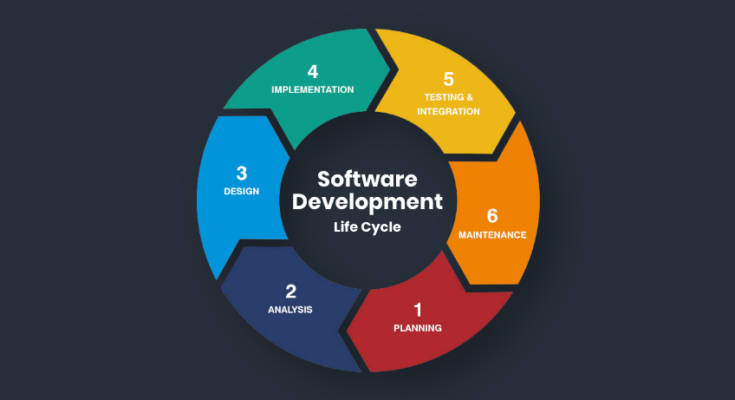The system design stage is practically an prolonged model of the plan developed in the course of the first phase. So, all gathered information in regards to the product is being analyzed and systematized. The info received during the requirement analysis stage was primarily described in words, and at the design stage, the plan is amended with the technical details system development life cycle.
How Is Sdlc Different From Stlc?
All exams are performed as practical testing, including unit testing, integration testing, system testing, acceptance testing, and non-functional testing. Starting software program development with the Waterfall or V-shaped model when the finances is comparatively low is questionable. Such fashions require numerous cycle repetitions leading to increased growth time and, consequently, the price range. Verification and validation mean various things, though they appear pretty related.
How The Iterative Mannequin Streamlines Growth
They are used for the fast creation of a number of early-stage working prototypes, which may then be evaluated. AI monitoring tools ensure that best practices are rigorously adhered to. The next stage of a system growth project is design and prototyping. This includes the primary system prototype drafts, market analysis, and an evaluation of rivals. It acts as the foundation of the entire SDLC scheme and paves the way for the successful execution of upcoming steps and, finally, a profitable project launch.
What’s Systems Improvement Life Cycle?
Defensics is a comprehensive, versatile, automated black field fuzzer that enables organizations to efficiently and successfully discover and remediate security weaknesses in software program. Black Duck provides merchandise and providers that can be built-in throughout your SDLC that can assist you construct secure code, fast. The most necessary best follow to implement into your SDLC is efficient communication throughout the complete staff. The launch section involves the team packaging, managing and deploying releases across totally different environments.
- After the Concept Proposal is permitted, the System Concept Development Phase begins.
- Because of its simple structure, the waterfall model is simpler to make use of and offers a tangible output.
- You can use the spiral mannequin to ensure software program’s gradual launch and enchancment by building prototypes at each part.
- Business necessities are compiled and analyzed by a enterprise analyst, area skilled, and project manager.
Each model follows a specific life cycle so as to guarantee success in the process of software improvement. After the requirements are accredited, the process goes to the subsequent stage – precise development. Up thus far, all essential information about the product is prepared, and all details are thought out and designed. Developers’ task is to assemble them into one working infrastructure by placing them into code. So, they start to write the supply code while preserving in mind previously outlined necessities.
The plan is launched based mostly on the statistical data received within the final initiatives and even from the private developer’s experience. Application lifecycle administration (ALM) is the creation and maintenance of software purposes until they are no longer required. It involves multiple processes, instruments, and people working together to handle each lifecycle side, similar to ideation, design and growth, testing, manufacturing, support, and eventual redundancy. In traditional software program development, safety testing was a separate process from the software improvement lifecycle (SDLC). The safety staff discovered security flaws only after they had built the software program. This led to a excessive number of bugs that remained hidden in addition to elevated security risks.
The techniques growth life cycle initially consisted of five levels instead of seven. These two terms are sometimes used interchangeably though they imply various things. The first one stands for software program improvement life cycle and describes the phases that software program passes whereas being built. It streamlines the testing process by dividing it into particular phases as well.
However, it’s questionable how effective such an method will be as a result of an undisciplined team is as harmful as an overdisciplined. So, it’s important to consider all execs and cons earlier than deciding on a software growth methodology. Extreme programming contains strategies focusing on particularly the technical side of the software program development course of. They embrace continuous integration, pair programming, test-driven development, and so forth.
That’s why heavyweight methodologies usually face unexpectedly elevated time frames when one delicate change within the scope results in the cascade of changes and ruins all plans. Such a software program improvement strategy is suitable for smaller initiatives with fewer necessities. The software growth lifecycle (SDLC) outlines several duties required to construct a software program utility. The growth course of goes via a quantity of phases as builders add new features and fix bugs within the software program. SDLC methodologies match within a flexibility spectrum starting from agile to iterative to sequential. Finally, the planning process clearly defines the define of system improvement.
However, overreliance on buyer feedback might result in extreme scope modifications or end the project midway. When teams develop software, they code and take a look at on a special copy of the software program than the one which the customers have access to. The software program that customers use known as production, while different copies are said to be in the construct environment, or testing environment. Every hardware or software system goes by way of an iterative improvement course of with multiple steps, with each section encompassing a certain set of activities and tasks. At its core, the planning course of helps determine how a selected drawback may be solved with a sure software answer.




